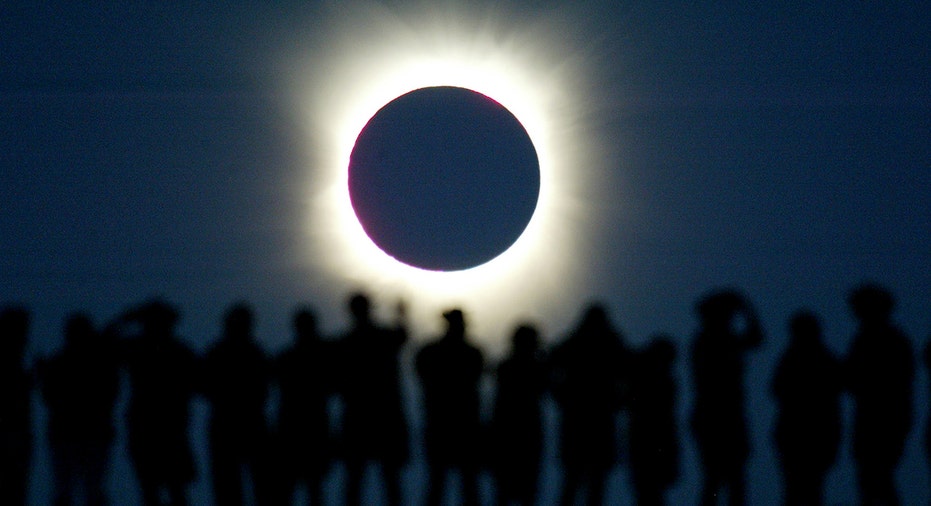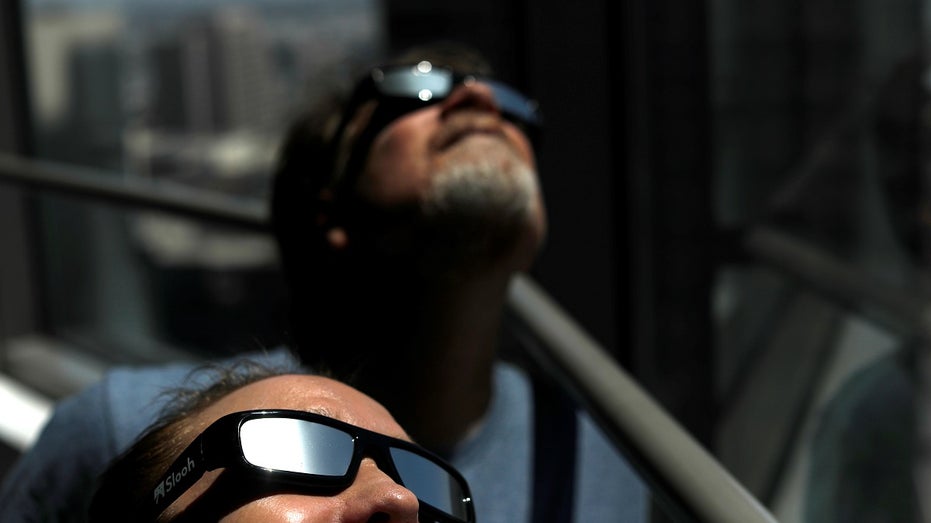The last solar eclipse of the decade is a 'ring of fire'

REUTERS/David Gray
Thursday was the final chance to catch an eclipse this year as well as this decade.
Many countries in Asia and parts of Africa and Australia will experience a partial solar eclipse, but a few such as Saudi Arabia, Oman, southern India and parts of Indonesia, Malaysia and the Philippines will experience a “ring of fire,” according to Timeanddate.com and reported by USA Today.
The eclipse began Wednesday at 9:23 p.m. EST and ends Thursday, Dec. 26 at 3:05 a.m. EST.
Also known as an annular solar eclipse, the celestial event takes place when a new moon does not cover the sun entirely, leaving a ring of sunlight around the moon. In a total solar eclipse, the moon completely blocks the sun.

Solar eclipse sunglasses REUTERS/Mario Anzuoni
The phenomenon occurs when the new moon is at apogee, explains Timeanddate.com, or when the moon is near its farthest point from Earth, allowing the sun’s edge to be exposed.
The “ring of fire” eclipse will last for just under four minutes, according to Travel and Leisure.
GET FOX BUSINESS ON THE GO BY CLICKING HERE
The celestial event happens when a new moon does not cover the sun entirely, leaving a ring of sunlight around the moon.
The best way to view the event from a livestream from various carriers, that is unless you can get a last minute transcontinental flight to view the eclipse in person.
Always remember to never look directly at an eclipse. Use special eclipse glasses or a pinhole viewer.
As for the upcoming eclipse calendar, the next partial solar eclipse will take place on June 21. Parts of Africa, including the Central African Republic, Congo and Ethiopia; south of Pakistan and northern India; and China, will be able to see another annular solar eclipse, Timeanddate.com says.
CLICK HERE TO READ MORE ON FOX BUSINESS
Next Dec. 14 will be the first total solar eclipse of the new decade. Travel and Leisure reports that for a few minutes in Chile and Argentina, the moon's shadow will totally conceal the sun.



















